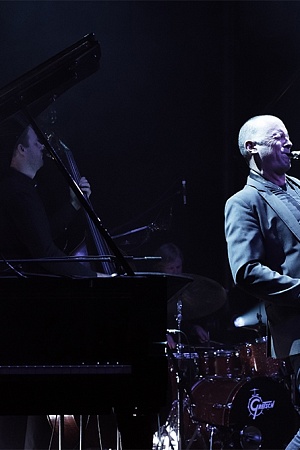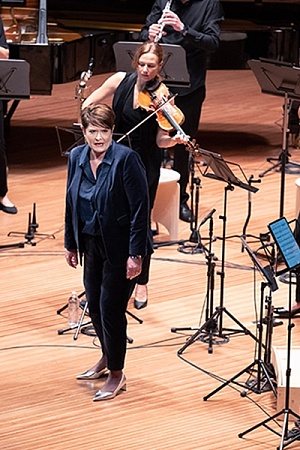Mahler’s Sixth Symphony (Sydney Symphony Orchestra) ★★★★
Sydney Symphony Orchestra is renowned for its meaningful programs, where the individual items are connected through some historical, musical, or even technical thread. Whether most members of the audience notice that the program focuses on great Romantic masterpieces, a particular year in history, or the works of one composer is another matter. The program of this week’s subscription concerts, however, was less than convincing. The juxtaposition of Benjamin Britten’s Les Illuminations, op.18 with the Gustav Mahler’s mammoth, ninety-minute-long Symphony No. 6 in A minor offered unfair comparisons. Aficionados waited for Simone Young’s rendition of ‘The Sixth’ with great anticipation. By contrast, Britten’s brilliant opus seemed slight and ill-fitting, the interval came too soon, and the concert finished later than most SSO concerts. Less, on this occasion, would have been more.
Les Illuminations – based on French poems by Arthur Rimbaud – is an early example of Britten’s fascination with the human voice and its colourful combination with instruments. (First performed in 1940, it precedes Peter Grimes by five years.) The British composer successfully adopted an idiomatic style in which the French words fit perfectly while remaining true to his own musical language. Furthermore, it is a curious fact that the work can be performed with either a soprano or tenor soloist, an uncommon liberty granted by the composer who wrote the work first with a female voice in mind but recorded it with his life partner, Peter Pears.
Two expatriate Australians stood at the helm of this performance, with tenor Steve Davislim performing the solo part, and Simone Young conducting. It was a solid if hardly memorable reading of the work. In the opening movement, the daring apposition of one trumpet-like passage on the violas in B flat major, and another on the violins in E major (the key furthest away), felt ordinary rather than shocking; perhaps, because the composer’s instruction to play these runs in an eerie tone (sul ponticello) was not audibly followed. Delicate hints in the score were noted but at times executed unclearly. The elegant rubato of these songs (demonstrated, for example, in the seminal Lockenhaus Festival recording, available on YouTube), a hard task indeed, was not a main feature of this performance.
Continue reading for only $10 per month. Subscribe and gain full access to Australian Book Review. Already a subscriber? Sign in. If you need assistance, feel free to contact us.















Comments (2)
A great joy to have your very erudite review, while my even more especial gratitude to you for writing it, further to me having been at Friday night's play of this concert.
I thought it ( the Mahler) was one of the truly great events so far in this year's SSO program while in its urgency surpassing even Ashkenazy's 2010/11 performances of the work. Anyway, thank you for confirming many of the sentiments that I felt after we staggered out of the hall further to this profound and moving cultural experience!
With best wishes,
Marcus Adamson
Darlinghurst, NSW.
Leave a comment
If you are an ABR subscriber, you will need to sign in to post a comment.
If you have forgotten your sign in details, or if you receive an error message when trying to submit your comment, please email your comment (and the name of the article to which it relates) to ABR Comments. We will review your comment and, subject to approval, we will post it under your name.
Please note that all comments must be approved by ABR and comply with our Terms & Conditions.